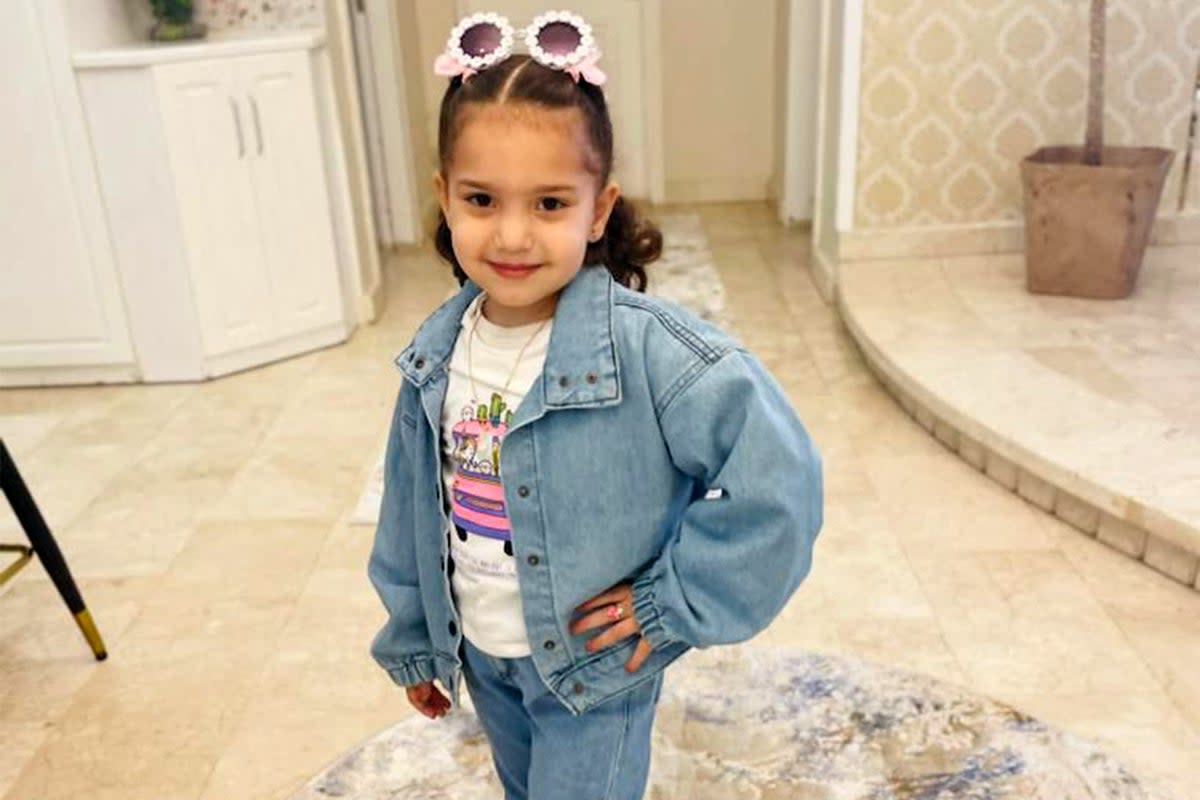Voices: The killing of six-year-old Hind Rajab in Gaza should shame us all

If every war has a tipping point, the death of little Hind Rajab should be it.
The six-year-old was killed in Gaza City by what undeniably looks like Israeli gunfire, while trapped in a car, surrounded by the bodies of her dead relatives.
An ambulance that had reportedly received permission to rescue Hind from the unthinkable scene was also fired on. Two paramedics lost their lives. The Palestine Red Crescent Society (PRCS) has accused Israel of deliberately targeting them.
Israel has not released an official statement regarding Hind, her family, or the deaths of the paramedics – naysayers will argue that we can’t possibly attribute culpability; that we don’t know what really happened.
But all too often, the simplest explanation is the right one. And the facts speak for themselves, no matter which way you look at it: a little girl died, alone and terrified, in unimaginable circumstances. Her death shames us all.

It shames the perpetrators who pulled the trigger on 29 January, leaving the family’s car riddled with bullet holes. It shames those in power; those who made (and continue to make) such appalling decisions remotely – from plush chairs in wood-panelled offices, from safety, from afar.
It shames those who started this war, and those who have sought to prolong it.
It shames all of us who are complicit, simply by looking away. Our human instinct and desire to help innocent children should be universal – our humanity should not stop at borders.
It shames those who try to balance blame, like they’re shifting sand on scales: “Well,” they say. “She died, yes, along with 10,000 other Palestinian children in 100 days, yes. But this is a war. What do you expect?”
I’ll tell you what we expect: that no child should ever be slaughtered. That no child’s final moments should ever play out like a horror film that would be considered too sickening to watch. That children’s lives everywhere are valued equally, and given the same level of help and protection.
We expect that no child should ever have to hide beneath the dead bodies of her uncle, aunt and three cousins to try to stay alive.
We expect that no child’s brave bid for rescue – Hind had the forethought and courage to call for help, pleading with PRCS operators for three hours for someone to rescue her, before the call was cut off among sounds of heavy gunfire – would be sabotaged.
We expect never to have to hear audio footage revealing the haunting final words of a little girl begging for someone to “Come and take me, will you come and take me? I’m so scared. Please come. Please call someone to come and take me.”
We expect that even in war, those offering help – ambulances, medics, hospital staff – are given safe passage to do so.
We expect that no mother should ever have to do what Hind’s mother now has to do: wait for someone to be held accountable for her daughter’s savage killing. “How many more mothers are waiting to feel this pain?” Wissam told the BBC. “How many more children do you want to get killed?”
We expect nobody to justify the shooting of a child. And we expect those in power to respond humanely and empathetically to continued loss of life in extreme and outrageous numbers.
Hind isn’t the first child lost and she won’t be the last. We saw a similarly shocking tragedy in 2015, when the body of two-year-old Alan Kurdi, from Syria, was washed up on a beach in Turkey.
His family had been making the treacherous journey to escape civil war. Footage of his tiny, lifeless frame laying face down on the sand became a symbol of the (ongoing) refugee crisis. His death shamed us, then, for our government’s hesitation in taking in refugees and for not alleviating the suffering of so many displaced children.
We can’t bring Hind back. We can’t stop her mother’s pain, or the pain of the tens of thousands of parents whose children have been killed since the heinous 7 October attacks.
But we can make Hind a symbol of what has been lost. We can demand her death be the tipping point of this terrible war. We can demand that this doesn’t now play out again in Rafah.
We can state simply how her death shames this government for refusing to call for an outright ceasefire in Gaza.
How are we at a point where the killing of innocent children is barely noticed and quickly forgotten?
It’s down to us all not to let Hind’s brutal and needless death become yet another tragedy that disappears in our silence.
The Independent has contacted the IDF for comment


